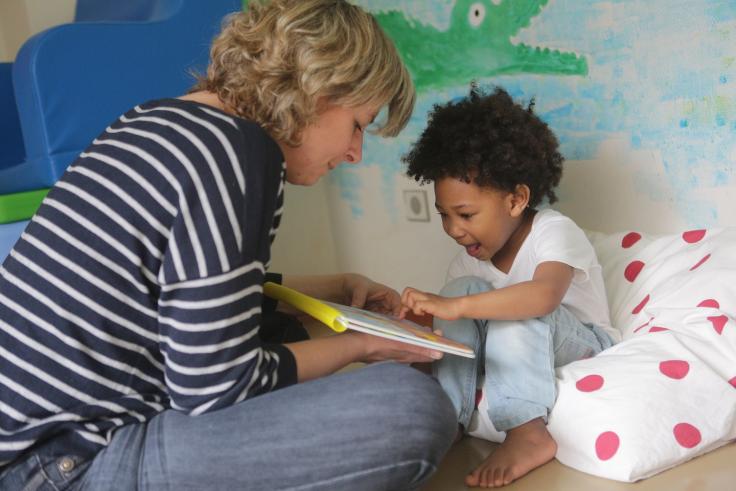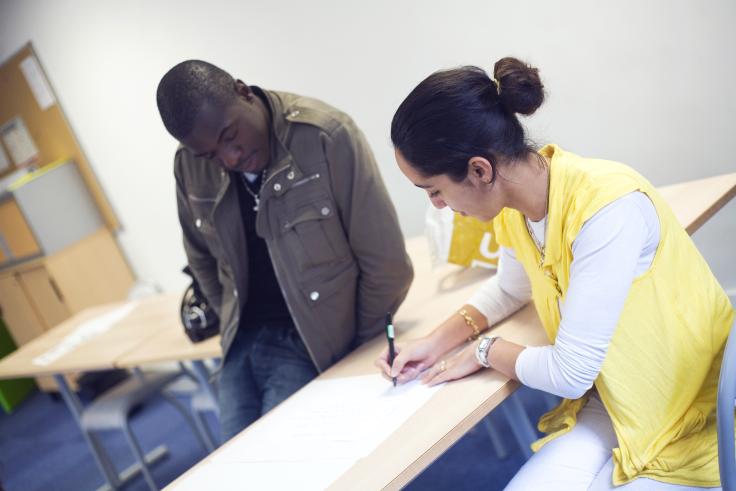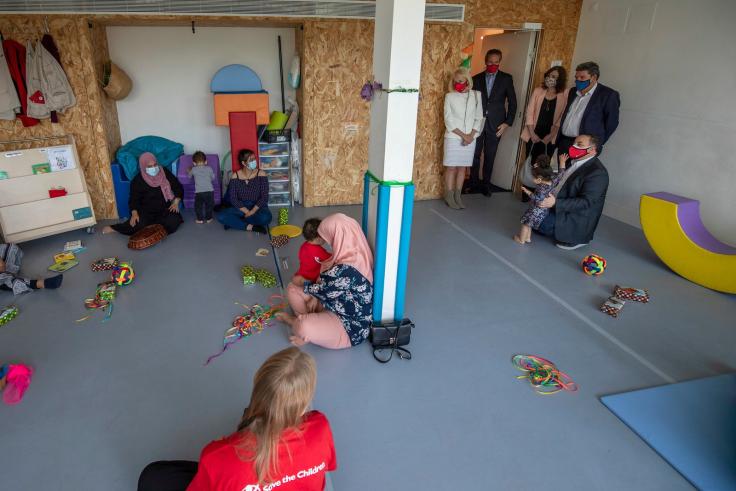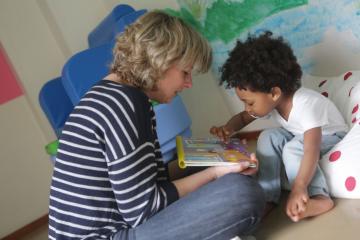Promoting Social Inclusion
Across Europe, almost 22 percent of the population, or over 95 million people, are at risk either of poverty or social exclusion (Eurostat, 2022), a broader category that includes households facing severe material or social deprivation or with very low work intensity.
Promoting social inclusion means helping individuals fully participate in the social and economic life of their communities and exit situations of economic precarity. J-PAL Europe supports the development of rigorous evaluations to generate widely applicable lessons on what policies and programmes work best towards this end. We also work directly with governments and other partners to support the application of that evidence in the design of new policies and programmes.
Examples of our research on social inclusion
Researchers from the J-PAL network have collaborated with a diverse range of partners, from national governments to local NGOs to international organisations, to conduct a growing number of studies on topics related to social inclusion. Recent examples of this work include:
- In Bulgaria, researchers partnered with 23 NGOs, the Trust for Social Achievement (TSA), the World Bank, and the Open Society Institute to evaluate an information and incentives campaign to increase kindergarten participation. They found that providing information to parents about the benefits of kindergarten increased attendance rates among Roma children and improved parents’ aspirations for their children’s education.
- In Turkey, researchers collaborated with the education ministry on a classroom intervention that encouraged Turkish and refugee children to think from one another’s perspectives. The programme lowered peer violence, improved relationships between refugee and host students, and increased students’ prosocial behaviours.
- In France, offering personalised consultations to jobseekers helped increase the uptake of social benefits: individuals who received an invitation to a consultation were more likely to both submit benefit claims and receive benefits.
- In the Netherlands, as part of a study funded through ESII, researchers are using artificial intelligence to evaluate an algorithm that helps placement officers identify the best locations for asylum seekers that can maximise their economic outcomes.
For more lessons from rigorous evaluations, see our Evidence for Social Policy in Europe page.
Funding the generation of new evidence in Europe and beyond
Our efforts to generate new research on social inclusion are anchored by two major research initiatives–the European Social Inclusion Initiative and the Displaced Livelihoods Initiative–which have been generously supported by our partners at Community Jameel, the IKEA Foundation and Porticus.

The European Social Inclusion Initiative
Launched in 2019, the European Social Inclusion Initiative (ESII) is a research and policy initiative that aims to answer some of the most pressing questions in Europe today related to social inclusion. ESII has funded research projects in 8 European countries, ranging from a programme to facilitate the integration of Syrian refugee children in Turkish classrooms to studying algorithms designed to help refugees in the Netherlands settle and find work more easily. Learn More.

Displaced Livelihoods Initiative
Launched in 2023, the Displaced Livelihoods Initiative (DLI) aims to inform the design of policies and programmes that empower refugees and others forced to flee home to rebuild their lives and achieve economic self-reliance. Managed in partnership with Innovations for Poverty Action (IPA), the research fund will generate evidence on the creation of sustainable livelihoods for both displaced and host communities globally. Learn more.

A policy lab for social inclusion in Spain
In Spain, J-PAL Europe is working with the Ministry of Inclusion, Social Security and Migration and a team of researchers coordinated by the Centro de Estudios Monetarios y Financieros (CEMFI) to bring rigorous evaluations to Spanish social policymaking. J-PAL Europe is providing technical advice to evaluations of pilot social inclusion policies that target recipients of the minimum income scheme, and supporting the Ministry in considering how to apply the lessons from these evaluations to design more effective social programmes in Spain and across Europe. Learn more.


